What to Feed a Senior Dog Losing Weight
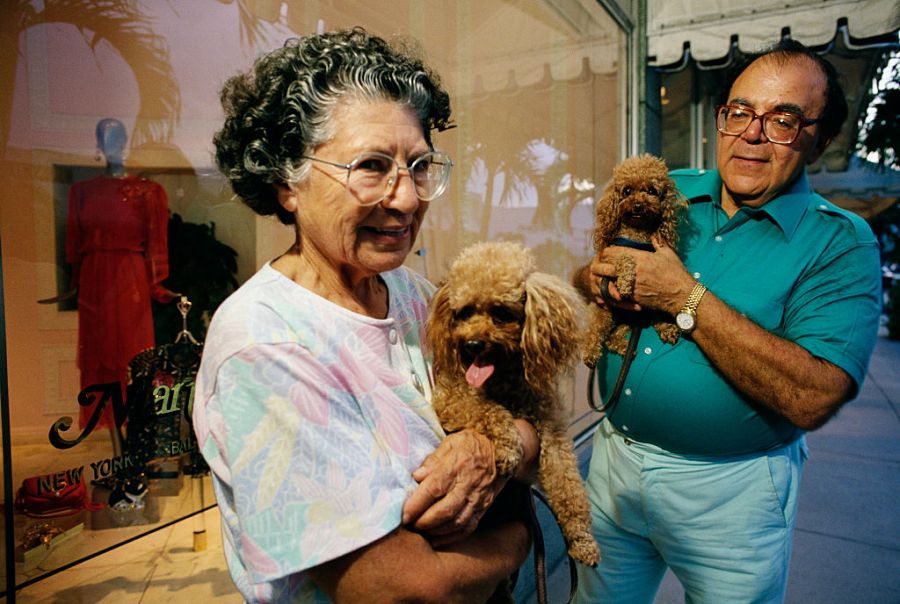
With old age comes a shade of loneliness. As young ones grow up, seniors are mostly left alone. This is where furry friends come to the rescue. According to research, approximately 88% of pet owners claim to adopt dogs for companionship.
Picking the right dog for your lifestyle and age is essential. This article will look at the ten best dog breeds for seniors.
Beagles
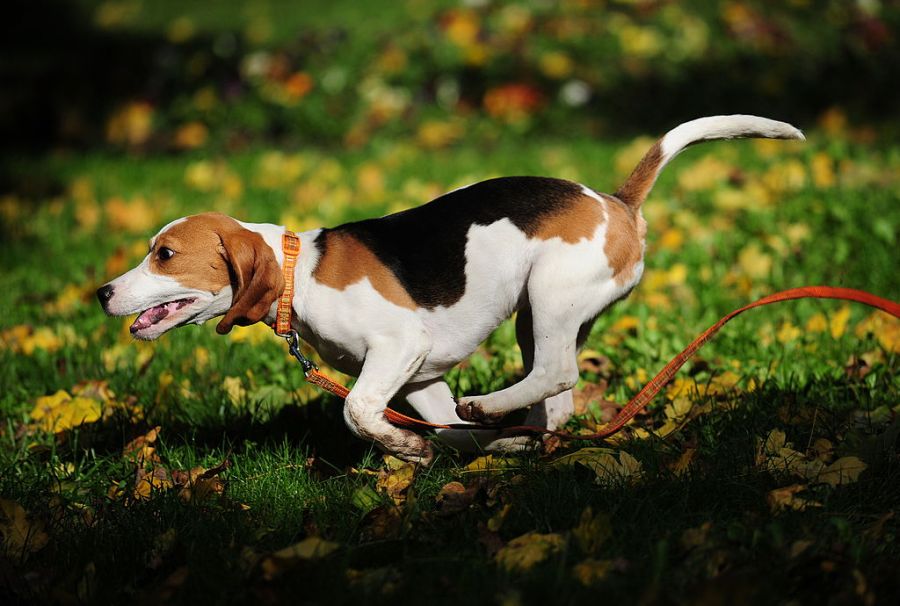
Beagles are known for their friendly, merry, and lovable character. Beagles are also pretty fond of the outdoors and love to exercise. You'll find them chasing critters or squirrels in your backyard. Beagles are ideal for seniors who have a bit of a step in them and don't mind regularly walking or visiting the park. Beagles also do well with children.
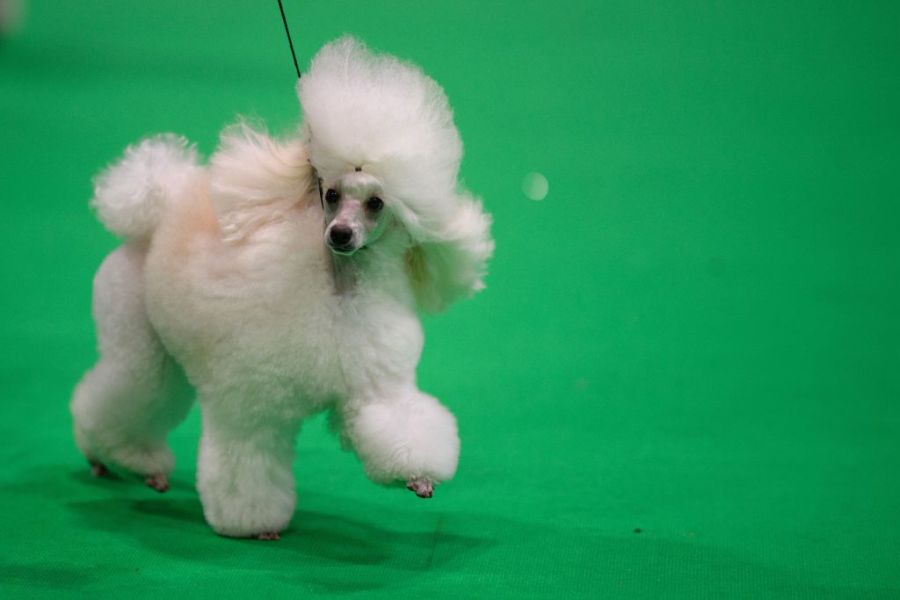
Poodles are a popular and intelligent dog breed. This fluffy bundle of joy can learn fast, making it easy to train. Poodles come in three sizes; tiny toy, miniature, and a standard poodle. The smaller-sized poodles are ideal for houses or apartments with small spaces. Poodles do not require a lot of exercise and weigh between 5 and 70 pounds.
On the other hand, poodles require a fair amount of grooming; every four to six weeks due to their dense, curly, single-layer coats. Aside from that, poodles are the best companion for seniors due to their loving and nurturing nature.
Cavalier King Charles Spaniels

Like poodles, this dog breed exhibits a high level of intelligence, making them easy to train. The Cavalier King Charles Spaniel breed is playful, bringing joy to every room they enter. This breed is particularly happy when cuddling with its owner and is easy to handle, owing to its small size. Cavaliers have a long coat that tangles without periodical grooming and brushing, especially behind their ears.
French Bulldogs
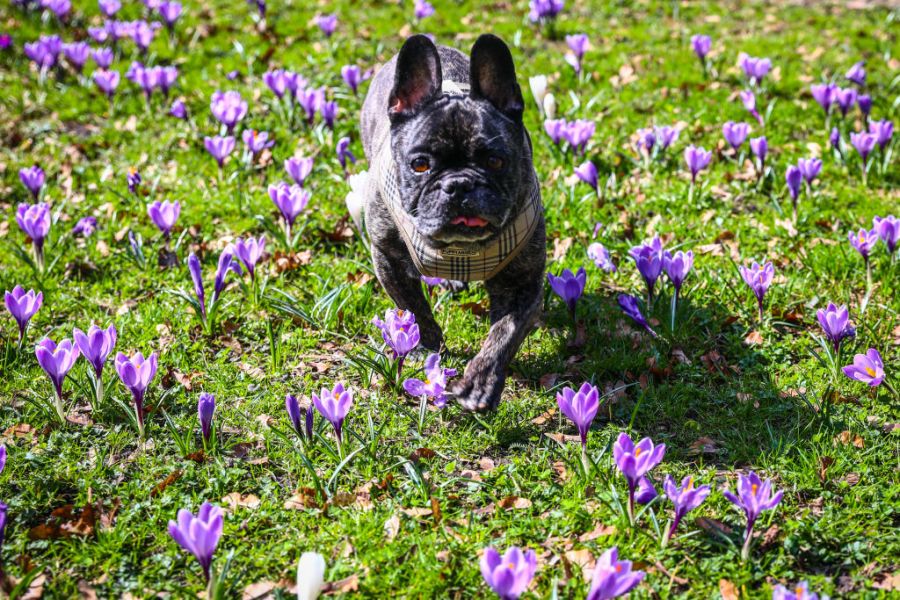
The French Bulldog is an excellent choice when looking for calm dog breeds for older adults. Weighing 19-28 pounds, French bulldogs, also known as Frenchies, are the ideal breed for senior couples looking to fill their golden years with fun.
This breed has minimal grooming needs and requires modest daily exercise. However, brachycephalic syndrome is common in this breed, so do expect them to have breathing difficulties.
Pembroke Welsh Corgis
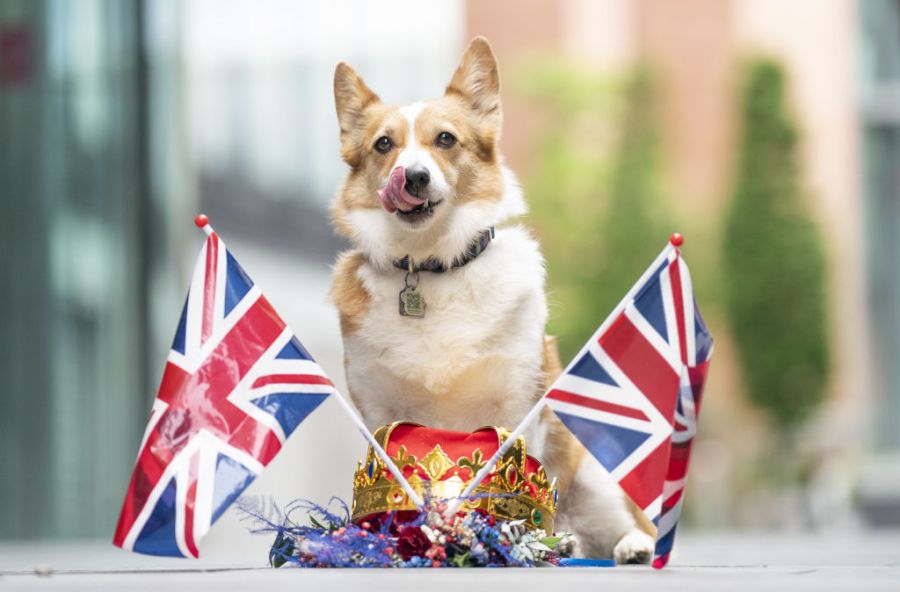
With a height of 10-20 inches, corgis are easy to handle, despite weighing 24-30 pounds. Corgis are pretty intelligent and easy to train. They are also protective of their owners, making them excellent guard dogs.
Pomeranians
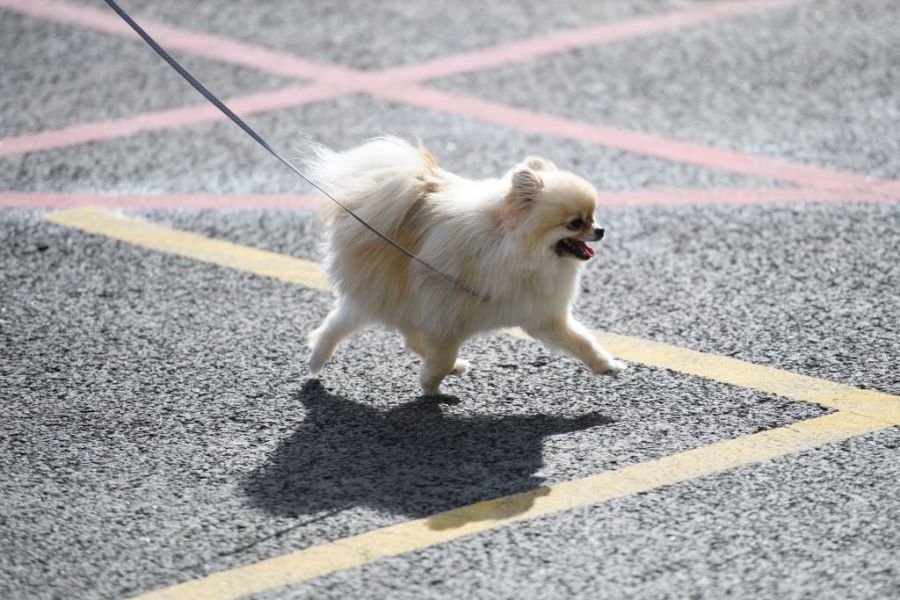
Mildly stubborn yet lovable dogs, Pomeranians are your typical lap dogs with a streak of independence. Weighing 3-7 pounds, Pomeranians are easy to handle and enjoy companionship. The breed is ideal for seniors living in detached homes since they tend to bark at the sight or scent of guests.
Shih Tzus
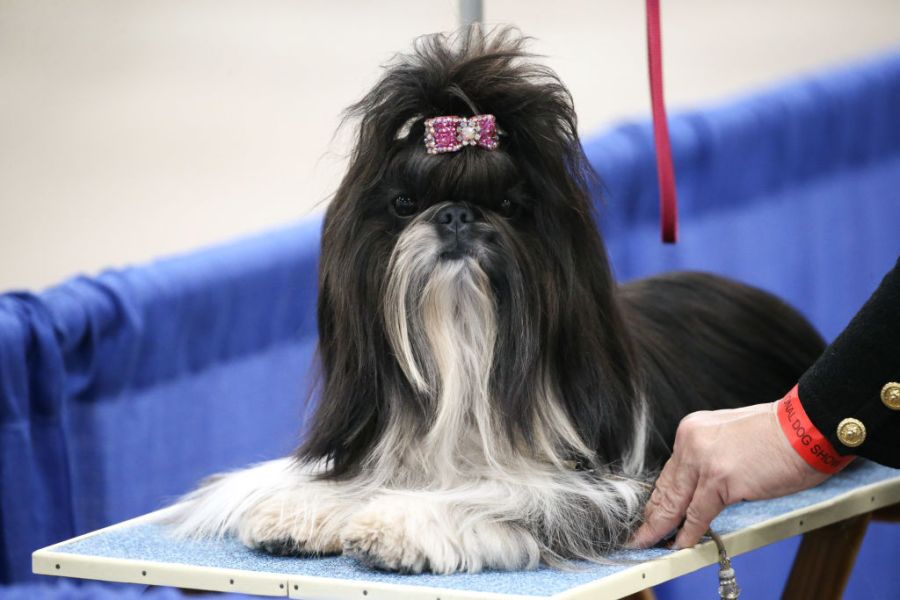
Another popular breed in the small dog category is the mildly stubborn Shih Tzu. This breed is energetic and requires several daily walks and periodical grooming. This breed is susceptible to skin conditions and brachycephalic syndrome. Shih Tzus have a mild temperament making them suitable for seniors, children, or other pets.
Boston Terriers
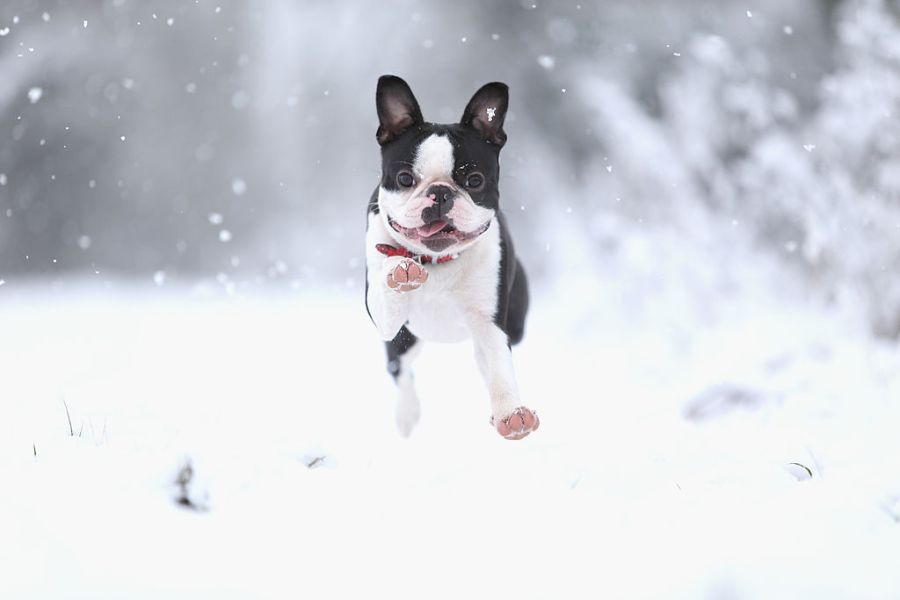
The Boston terrier is another good breed for seniors as they are a fun-loving and cuddly breed that can fit nicely in your lap. The breed requires minimal grooming. Boston Terriers don't bark as much as other smaller breeds, making them ideal for seniors residing in assisted living communities.
Pugs
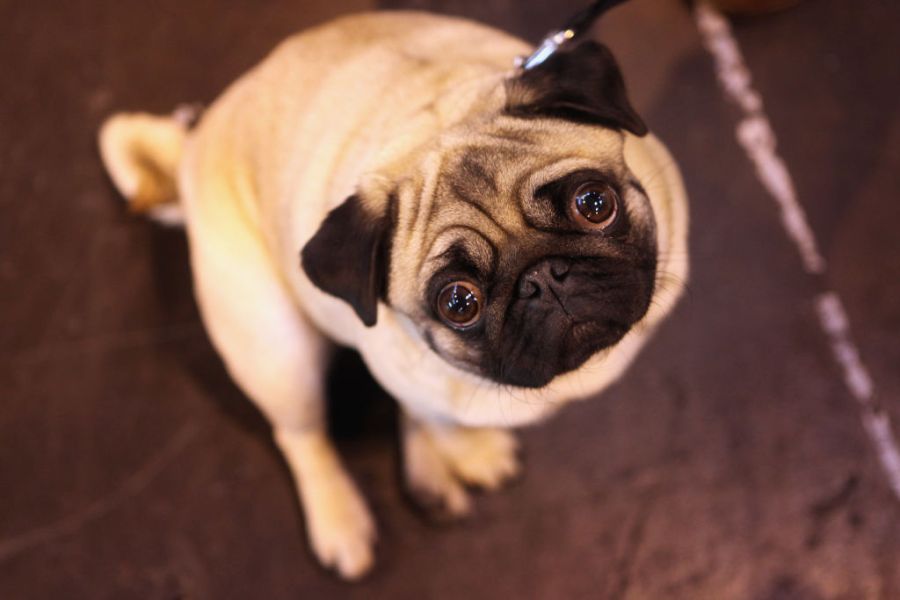
An important thing to know when considering getting a pug is that they are big eaters. Owners need to monitor this breed's eating habits, as overfeeding them can be bad for their health.
Pugs are suitable indoor pets, as they don't need a lot of exercise. Pugs tend not to bark as much as other smaller breeds; however, they are known to snore. Due to their friendly temperament, pugs get along easily with other dogs and children.
Havanese
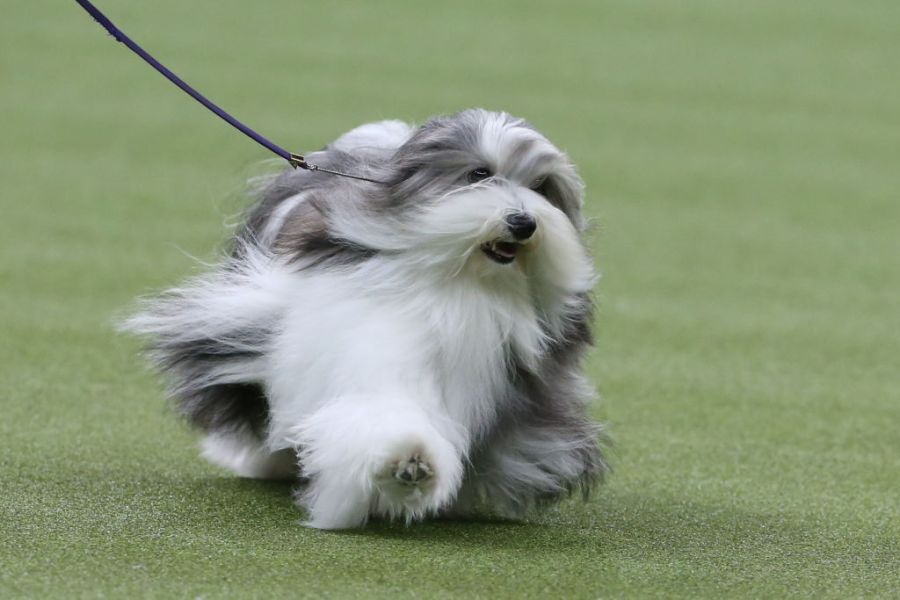
Due to their high-spirited nature, Havanese are excellent companions for seniors. The breed has a life expectancy of 14 years. In some cases, this breed can suffer from separation anxiety when left on its own. Havanese are ideal for seniors looking for cheerful and loving companions.
Factors to Consider When Choosing a Breed
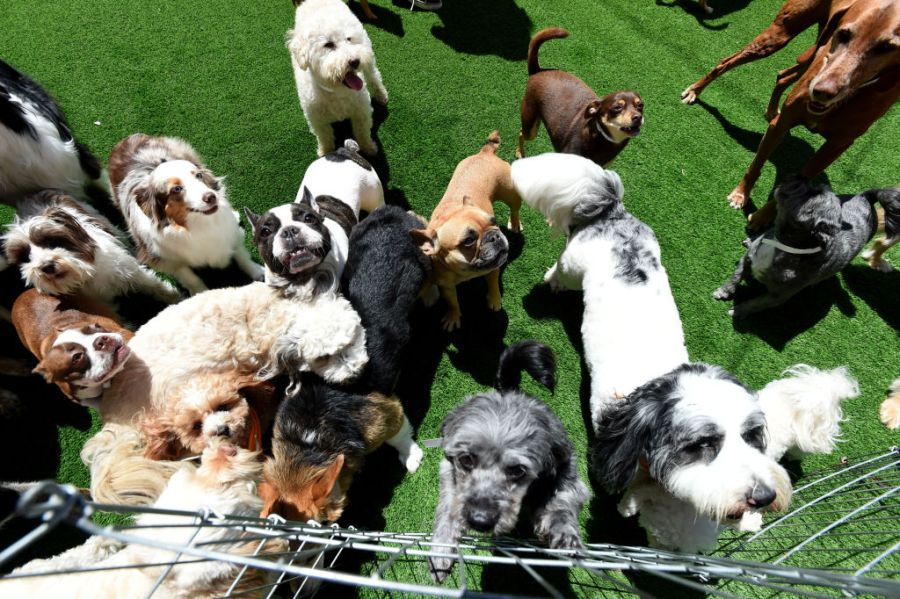
Owning a dog comes with responsibility and presents several factors you need to consider. One of the general considerations to keep in mind is the size of your house. A big dog needs space, so a tiny apartment wouldn't be the right home for them. Big dogs should have access to larger backyards so that they have room to run and play.
Other than size, there are additional factors you should consider when selecting a dog breed:
- Grooming: Some dog breeds require regular trips to the groomers. Breeds that shed, will need regular brushing so their fur doesn't go all over your house. If you don't have much time for grooming, a beagle is an excellent companion and requires little grooming, thanks to their medium-length coats.
- Lifestyle: Your lifestyle will dictate the amount of time you dedicate to your dog. Some breeds have high energy levels and require regular exercise. If you're one to take a walk, a Dalmatian, Rottweiler, or a Labrador Retriever can be the perfect exercise partner. If you don't exercise often, a smaller breed would be better.
- Character: Different dog breeds have different dispositions. Some dogs may display a friendly or easy-going personality, while others can be strong-willed or stubborn. The latter can be a tad tedious for seniors to handle. In this case, an easy-going breed would be ideal.
- Age: The average lifespan of a big dog is 8 to 12 years, while the lifespan of a smaller breed varies between 10 to 15 years. Depending on the age, it is best to consider who will look after your dog if they outlive you. For seniors, an older trained dog is preferable to young puppies. This is because the latter tend to be energetic, which older adults may not be able to keep up with. Additionally, older dogs are calmer and trained.
Get the Best Dog for Your Home
If you're looking for a furry friend to keep you company as you age, one of these ten breeds might be perfect for you. Do your research on each breed before making your final decision; not all dogs are the same, and some may be better suited for seniors than others. And remember, no matter which breed of dog you choose, always consider the individual animal's personality and temperament before bringing them into your home.
Source: https://www.reference.com/pets-animals/best-dog-breeds-adults?utm_content=params%3Ao%3D740005%26ad%3DdirN%26qo%3DserpIndex&ueid=86411a62-f3d7-4542-8fad-5bc3bcef116e
0 Response to "What to Feed a Senior Dog Losing Weight"
Postar um comentário